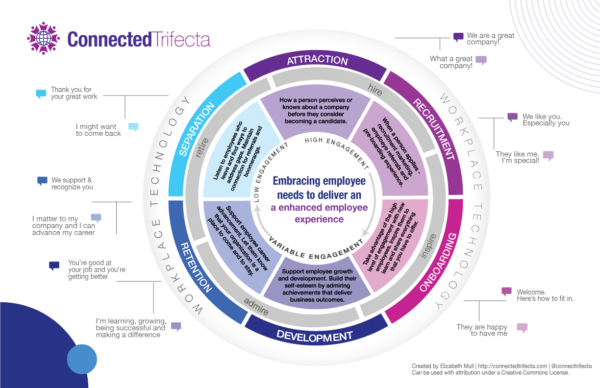Whether your traditional programs and tactics need a simple revitalization based on best practices or because you’d like to revolutionize them so you can engage employees, as an HR or employee communications function, we have the unique opportunity to turn everyday transactions into employee interactions — to transform everyday tools. Hence, they are relevant to how employees live and work. All employees interact with an organization through a cyclical process: from when they start thinking about you as a potential employer to when they become employees up through when they leave.
A simplified approach is to think of it as “Hire-Inspire-Retire.” Depending on your organization’s complexity and needs, you may take a more in-depth approach to the employee experience. No matter how you define it, the employee lifecycle is the foundation for balancing business needs with the needs of your employees.
When looking to enhance current programs or processes, we tend to focus on the needs of the business first and the needs of employees second. Using the employee lifecycle as your roadmap ensures you are focusing on the holistic needs of employees and considering their varying motivators so that your HR programs and communications can be modified accordingly. You see a higher return on engagement when you identify key employee touchpoints and higher productivity levels when you deliver practical tools.

- Version
- Download 58159
- File Size 1.61 MB
- File Count 1
- Create Date August 20, 2024
- Last Updated February 1, 2025
